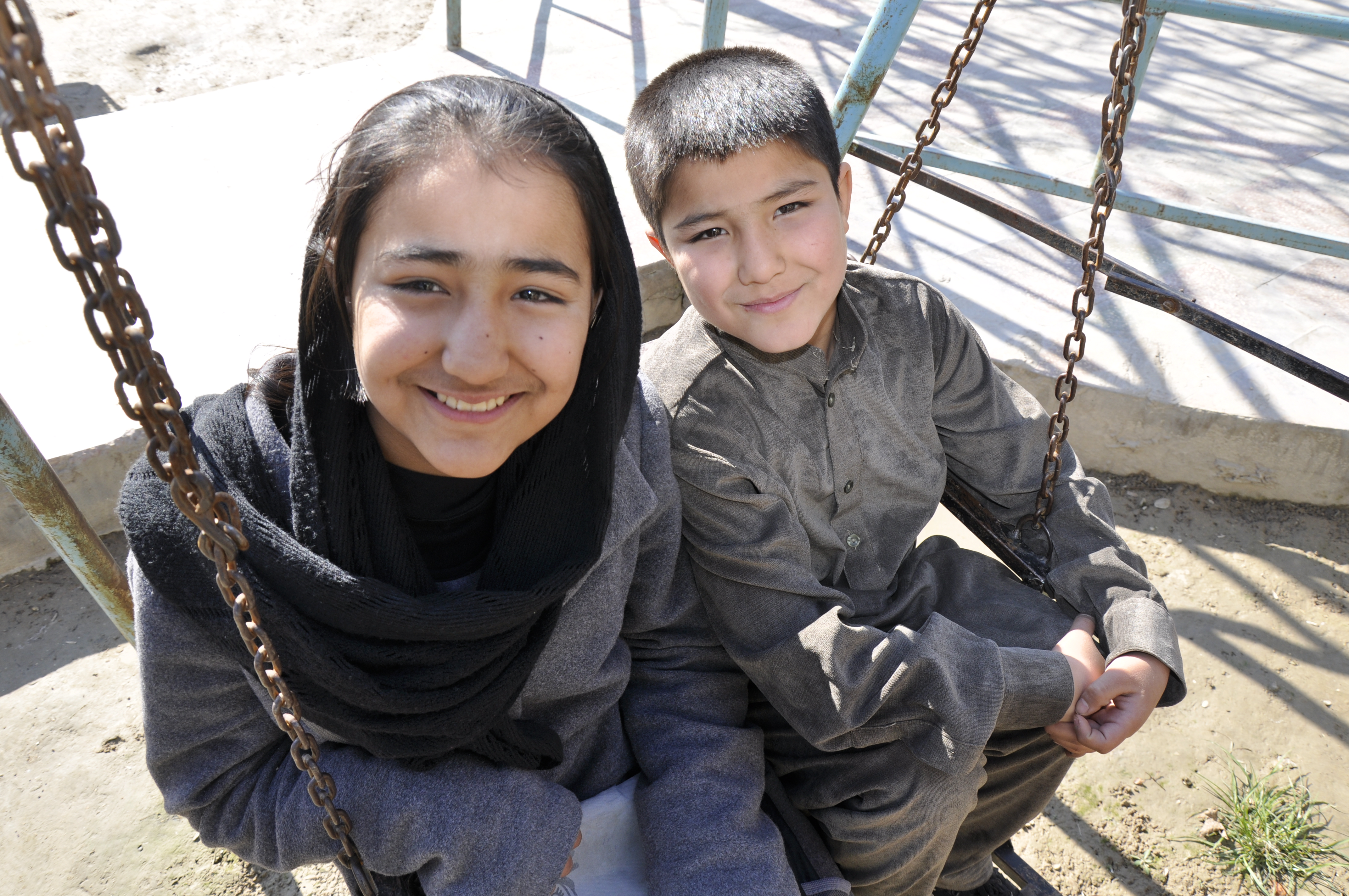Tamana and Mujaba ready for an ordinary school

The family lived far outside Mazar-e-Sharif. But one day, they saw a TV program about the SCA center for children with disabilities, and realized that they had to move into the city to give the two deaf children in the family a chance to live in dignity. Now Tamana, 13, and Mujaba, 11 years, attends school, and they love it.
“I’m happier now than before, and feel that I’m a part of society. I can read, write – even English letters – and I can read poetry”, says Tamana in sign language, interpreted into Dari and then to English.
Tamana is active and constantly smiling, Mujaba are more thoughtful. Dari, English and math are his favorite subjects. They both have got their eyes on sports, and would very much become professional athletes in some way.
They have been three years in the SCA preparatory class and it will soon be time to take the step to an ordinary school. Something they both look forward to. But their mom, Friba, who also is a teacher is concerned about what will happen.
“They do not know what awaits them. Many teachers and even headmasters have prejudices against persons with disabilities. They talk in a discriminatory way about people who are different”, says Friba.
SCA staff is not that worried. They know that at the school where Friba works are no children with disabilities and teachers have not received any training on disability. But there are 3 000 other teachers in the three provinces where the office in Mazar-e-Sharif is responsible for operations that have received training on disability. Teacher training is included in the programme called Inclusive Education. This program also contains production of teaching materials, such as books in Braille. Another part is support in schools to students, teachers and headmasters.
Through the years, the program in the three provinces have integrated around 1 200 students with disabilities to public schools. Some of them have now left school, because they have dropped out of school, or because they might have become internally displaced or left the country. But more than 900 students with disabilities are still in the public school system.
The concerns Friba feel about letting the kids take the leap over to a regular school is perhaps not entirely unjustified. SCA has 14 resource persons employed, with the mission to provide support in schools. Only 14 people for about 900 students with special needs, the project managers wish there were resources to hire many more.
Tamana and Mujaba feel no concern for the future. They have got a chance that all children with disabilities in the world should have, but not everyone gets. They have gained knowledge and language that enables them to communicate with people around them, and also a better understanding of what is going on in the world. Thanks to the efforts of SCA a local TV channel broadcasts news in sign language once a week.
Even communication within the family works better. The six other siblings have in varying degrees learned sign language. Mom Friba says that even two years old unconsciously make the sign of water when she is thirsty.